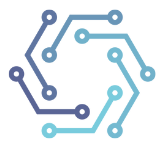Pros and Cons of PHP Development
PHP development is a popular tool for both website and web-based application development. It has been around since the mid-90s, so it has had plenty of time to evolve into the powerful yet user-friendly language that it is today. But before you decide whether to use it for your next project, let’s take a look at some of the pros and cons of PHP development.
What Is PHP Development?
PHP development involves writing code in the PHP language to create functional websites or web apps. This coding language was initially developed as a way to make website development quicker and easier. It has since gained popularity due to its open source nature and wide range of capabilities, from simple HTML pages to complex database-driven applications.
How Does It Work?
PHP development involves writing scripts that can be interpreted by browsers or servers into HTML pages on the web. These scripts may contain functions such as loops, variables, arrays, classes and objects, plus other elements that help make websites interactive. By using different types of databases such as MySQL or Oracle, developers can create data-driven websites in which users can log in or access content stored within them.
The Benefits Of Using PHP For Web Development
Using a programming language like PHP for web development has many advantages over other types of software languages such as ASP or Python. Firstly, it is much easier to learn than many other programming languages due to its straightforward syntax and comprehensive documentation available online. Additionally, it is extremely versatile when it comes to creating various types of websites such as eCommerce stores or blogs – meaning you don’t have to learn multiple languages if you want different types of sites online. Lastly, there are numerous frameworks available for those who wish to use them – which makes developing complex applications much simpler than if done manually from scratch.
Pros of PHP Development 
One of the biggest advantages of using PHP is that it is open source software, meaning it can be used free of charge by anyone who wants to use it. Additionally, since it is so widely used there are tons of resources available online for people who are looking for help with their projects. This makes getting started with PHP development much easier than with some other languages.
Another advantage is its scalability. Whether you’re building a small website or an enterprise-level application, you can be sure that PHP will scale as needed without compromising performance or stability. This makes it an excellent choice for large projects that need to accommodate potentially huge amounts of traffic.
Finally, since PHP was designed specifically for web development, it comes equipped with lots of useful features such as the ability to access databases like MySQL and Oracle and support for various protocols like HTTP and FTP. This makes it an ideal choice if you want to create dynamic websites or web applications quickly and easily.
1. Open source
PHP is an open source scripting language, which means that it is free to download and use. This makes it a popular choice for businesses of all sizes, as it is a cost-effective option for developing websites and applications.
2. Cross-platform compatibility
PHP can be used on various operating systems, including Windows, Linux, and Mac OS. This makes it a versatile option for developers, as they can create applications that can be used on multiple platforms.
3. Database integration
PHP can be easily integrated with various databases, such as MySQL, Oracle, and Microsoft SQL Server. This makes it a good choice for developing dynamic websites and applications that require database interaction.
4. Scalability
PHP is a scalable scripting language, which means that it can be used to develop small websites as well as large enterprise applications. This makes it a good choice for businesses of all sizes that want to develop custom applications.
5. Large community
PHP has a large community of users and developers, which means that there is a wealth of resources available for learning the language and solving problems. Additionally, the community can provide support and assistance when needed.
6. Good documentation
PHP has good documentation available, which makes it easier for developers to learn the language and start using it quickly. Additionally, the documentation can be helpful when troubleshooting problems or looking for specific information about the language.
7. Easy to use
PHP is considered to be an easy-to-use scripting language, which makes it a good choice for those who are new to programming or website development. Additionally, PHP code is often simpler than other languages, making it easier to read and understand.
Cons of PHP Development
Despite its many advantages, there are a few drawbacks to using this language as well. One potential downside is security; while there are ways to secure your code against malicious attacks, inexperienced developers may not know how to do this properly which could leave their websites vulnerable to attack. Additionally, because anyone can use the language freely there isn’t as much emphasis on developing best practices or standards which means code written by different developers may not be consistent or organized in any meaningful way. Finally, since the language does not have built-in support for multi-threading or asynchronous programming (which can be essential if your application needs real-time data processing), more complex projects may require additional coding effort in order to achieve desired performance goals.
1. Limited Frameworks
One of the primary disadvantages of PHP development is that there are relatively few frameworks available when compared to other languages such as Java and Python. This can make it more difficult for developers to find the right tools for their project, and can also lead to longer development times as developers may need to build certain tools from scratch.
2. Inconsistent Syntax
Another downside of PHP is that its syntax can be inconsistent, which can make code more difficult to read and understand. This can lead to errors and bugs, and can make it more difficult for new developers to learn the language.
3. Lack of Standardization
Another issue with PHP is that there is no real standardization among different implementations of the language. This can make it difficult for developers to know which features will work across all platforms, and can also lead to compatibility issues.
4. Poor Documentation
One of the biggest problems with PHP is that its documentation is often poor. This can make it difficult for developers to find the information they need, and can also lead to confusion about how certain features work.
5. Limited IDE Support
Another downside of PHP development is that there are relatively few IDEs (Integrated Development Environments) available that support the language. This can make it more difficult for developers to find the tools they need, and can also lead to longer development times.
6. Lack of Third-Party Libraries
Another issue with PHP is that there are relatively few third-party libraries available when compared to other languages such as Java and Python. This can make it more difficult for developers to find the right tools for their project, and can also lead to longer development times as developers may need to build certain libraries from scratch.
7. Weak Type System
One of the biggest problems with PHP is its weak type system, which can lead to errors and bugs in code. ThisWeak type system means that variables do not have a specific type (such as integer or string), which can make it difficult for developers to know what kind of data they are dealing with. This can lead to all sorts of errors, particularly when dealing with large amounts of data.
Conclusion
Overall, PHP development has many benefits that make it an attractive option for many types of projects from simple websites all the way up to sophisticated enterprise applications. While there may be some potential downsides such as security concerns and lack of built-in support for certain features (like multi-threading), these issues can often be addressed through careful coding practices and/or additional libraries/tools used in conjunction with the language itself. If you’re looking for a powerful yet easy-to-use toolset specifically designed for web development then PHP might just be what you need.










